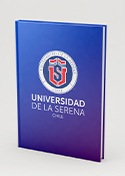Ciencias Sociales
Permanent URI for this community
Browse
Browsing Ciencias Sociales by Subject "Magister del discurso"
Caracterización discursiva del género dictamen producido por dos instituciones de la Administración Pública en Chile
(2023) Meza, Paulina; Moyano, Francisca
El objetivo de esta investigación es determinar la variación de las características discursivas del género Dictamen producido por dos instituciones de la Administración Pública en Chile: la Contraloría General de la República (CGR) y la Dirección del Trabajo (DT). En el marco de un estudio cualitativo, a partir de los criterios caracterizadores del género propuestos por Parodi et al. (2009), analizamos un corpus constituido por 81 Dictámenes (48 de la CGR y 33 de la DT). Entre los principales hallazgos destacamos que los dictámenes de ambas instituciones, a pesar de tener el mismo nombre, poseen propósitos comunicativos diferentes, hecho que permite establecer que corresponden a géneros distintos. Así, el Dictamen de la CGR tiene como macropropósito comunicativo ordenar algo a los jefes de servicio de entidades públicas, mientras que el de la DT pretende informar la legislación laboral a los trabajadores. En conclusión, el Dictamen de la CGR y de la DT corresponden a géneros distintos con elementos en común (contexto de circulación, modos de organización discursiva predominante y auxiliar, modalidad semiótica predominante), pero también diferenciadores (propósito comunicativo, relación entre los participantes y artefacto semiótico prototípico).
Generating Subjective Theories After a Disaster: The Role of Personality Generación de teorías subjetivas después de un desastre: el papel de la personalidad Geração de teorias subjetivas após um desastre: o papel da personalidade
(2021) González-Palta, Ingrid; Castro-Carrasco, Pablo; Cabrera, Enzo; Jamet, Paulina; Leal-Soto, Francisco
The role of people's beliefs in their perception of disasters has been scarcely studied. In this study, we analyzed how people who experienced an earthquake and a subsequent tsunami employ subjective theories (ST) to explain their traumatic experience. This study aimed to interpret the explanations developed by a group of people about the earthquake and tsunami that took place in Chile in 2015. Thirteen episodic interviews were conducted as part of a qualitative case study. The participants' theories were grouped into four categories: the impact of personality on one's reaction to hardships; the existence of a link between personality and coping styles; the limited influence of personality on one's way of coping with difficulties; and changes in personality after experiencing hardships. These findings are discussed analyzing whether the participants' explanations could foster personal growth and psychological well-being after the catastrophe.
Subjective theories of the Chilean teachers’ union about school climate and violence after the pandemic: a study of web news
(Frontiers in Education, 2024) Castro-Carrasco, Pablo; Cuadra-Martínez, David; Gubbins, Veronica; Rodríguez-Pastene-Vicencio, Fabiana; Carrasco-Aguilar, Claudia
Introduction: The COVID-19 pandemic increased school violence and worsened the school climate in Chile. In Chile, punitive control policies such as the Safe Class Law (Ley Aula Segura) have been adopted. A key actor in the public debate is the Chilean Teachers’ Union, due to its potential impact on new public policies on the issue. Objectives: The aim of this study was to reconstruct the subjective theories of school violence and school climate presented by the Chilean Teachers’ Union after the COVID-19 pandemic, in its public discourse broadcast on the web news. Methods: Based on a documentary study, a case study design and qualitative methodology, embedded in the FONDECYT project No. 1231667, titled “The social construction in Chile of school climate and school violence after the return to face-to-face education,” web news (N = 36) were analyzed in which the Chilean Teachers’ Union explains school violence and school climate after the pandemic. Results: We found subjective theories that explain the meaning of school violence and school climate, and external factors associated with the serious deterioration of these educational dimensions after the COVID-19 pandemic. Accordingly, we obtained a set of measures such as inclusive policies, curriculum, participation in the development of educational policies, and refunding public education that teachers propose to solve these phenomena in the future. Discussion: In the context of a union that has historically considered public policies to be non-participative in their formulation and distant from the schools’ reality, these findings have important implications for understanding the arguments of the Teachers’ Union about the need to improve mental health and working conditions as crucial elements for addressing school climate and school violence. Copyright © 2024 Castro-Carrasco, Cuadra-Martínez, Gubbins, Rodríguez-Pastene-Vicencio, Carrasco-Aguilar, Caamaño-Vega and Zelaya.
Value Creation in Start-Up Discourse: Linking Pitch and Venture Through Logics of Justification
(2023) Varas, German; Sabaj-Meruane, Omar; Cabezas, Paula; Spinuzzi, Clay; Fuentes, Miguel; Gerard, Valentin
How do start-ups create value through the language of their business pitches? In this article, we investigate that question by identifying the logics of justification they use, traditionally conceptualized as orders of worth. In this study of short written pitches in a 6-month Chilean accelerator program, we describe how we detected logics of justification through pitch language, and we identify (a) co-occurrence patterns among logics of justification, (b) associations between logics of justification and industry sectors, and (c) associations between logics and a firm’s customer segment (B2B, B2C). This study provides unique insights into how start-ups sometimes justify innovations by using specific patterns of language depending on a venture’s features.
